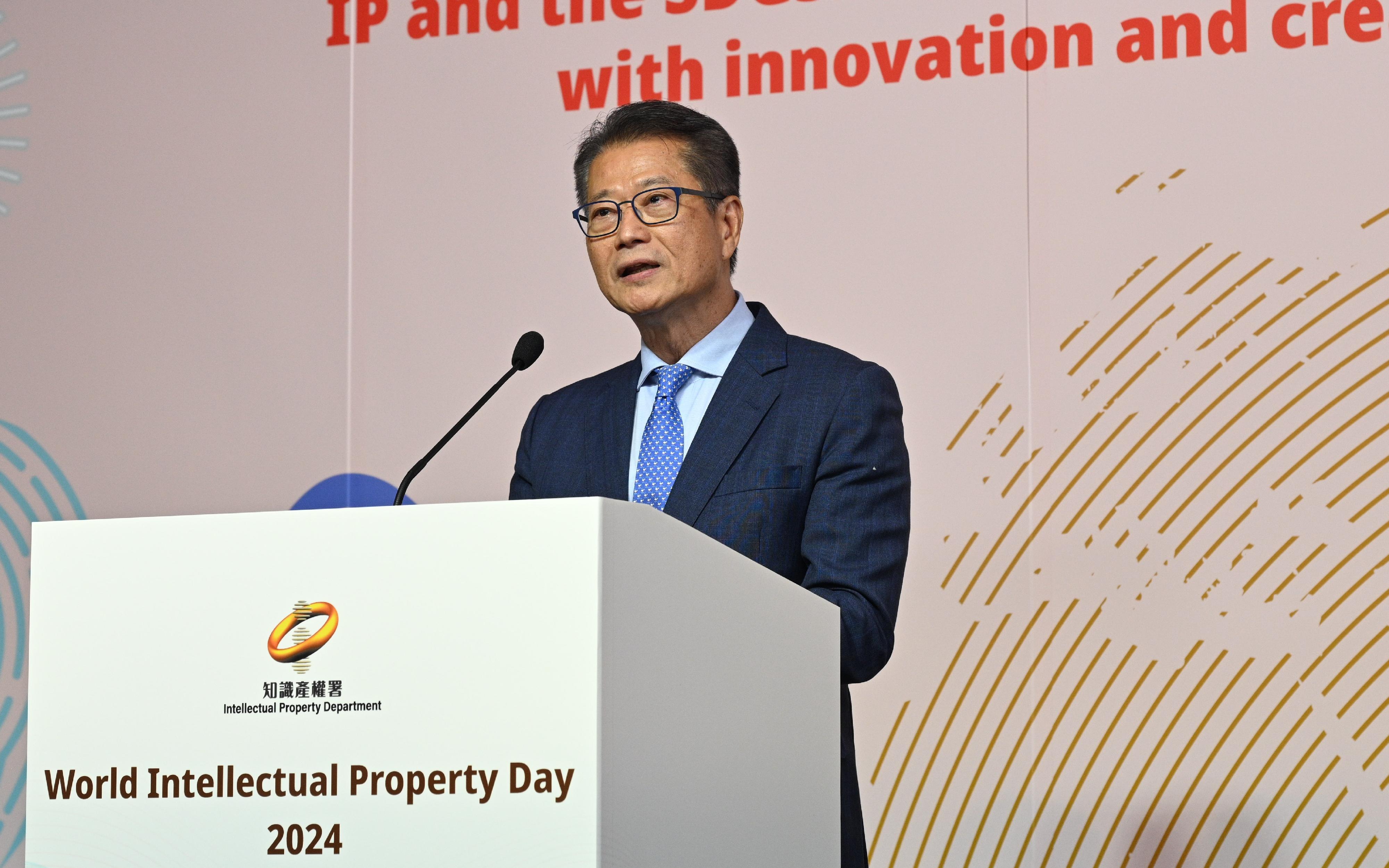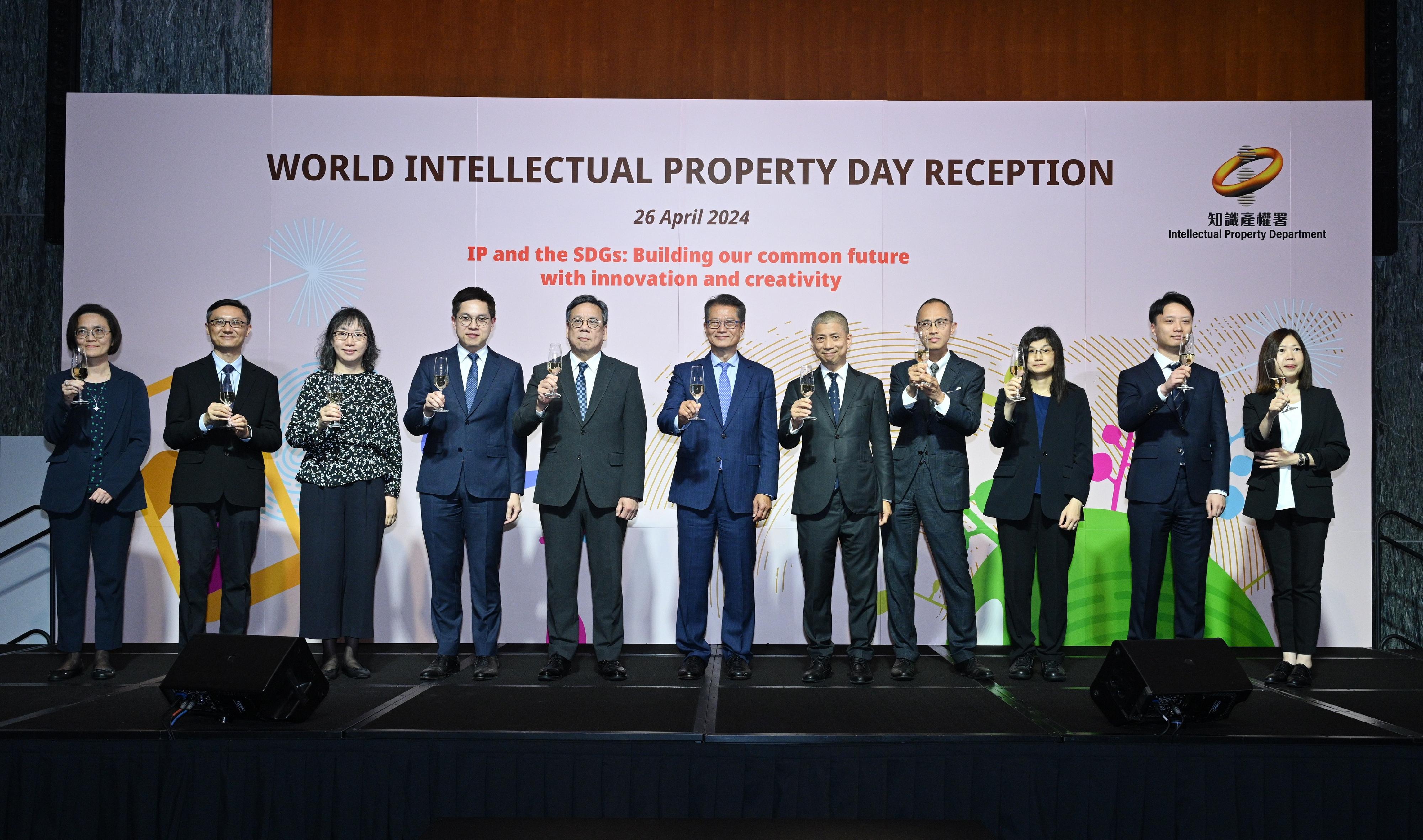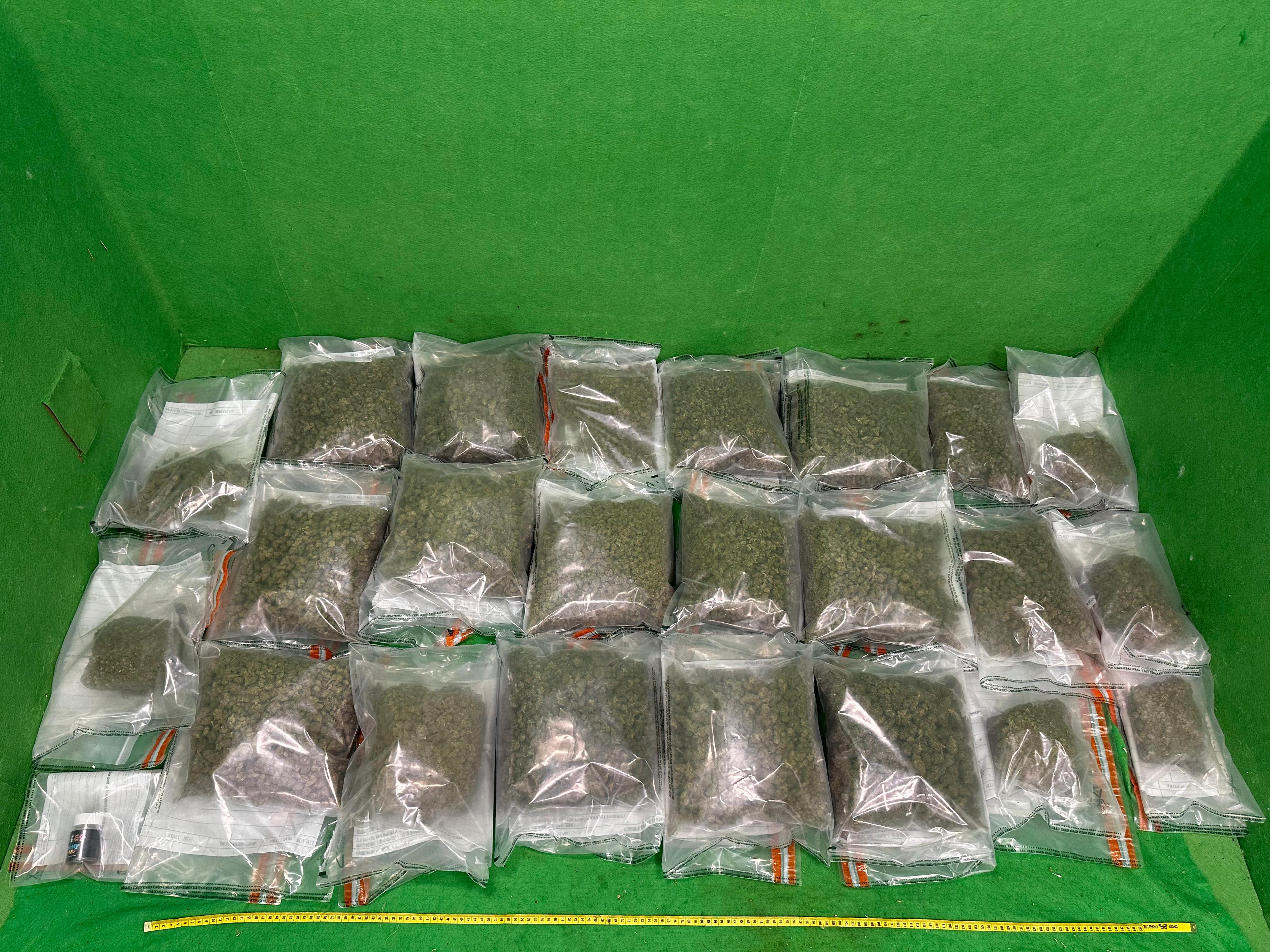Speech by FS at World Intellectual Property Day Reception (English only) (with photos)
Following is the speech by the Financial Secretary, Mr Paul Chan, at the World Intellectual Property (IP) Day Reception today (April 26):
Algernon (Secretary for Commerce and Economic Development, Mr Algernon Yau), David (Director of Intellectual Property, Mr David Wong), distinguished guests, ladies and gentlemen,
Good evening. I’m pleased to join you today in celebration of World Intellectual Property Day.
This annual gathering brings together IP principals and stakeholders, academia, the creative and innovation and technology sectors, government officials, consular representatives, business leaders and more. All of us, I’m pleased to say, share a passion for encouraging creativity, innovation and technology, for making the most of our intellectual creations for the good of the Hong Kong economy and community.
As you know, this Government is determined to develop Hong Kong into an international innovation and technology centre. We are also fast-tracking the growth of the creative and cultural industries to fuel our ambition of becoming an East-meets-West centre for international cultural exchange.
For these industries to thrive, a robust system of IP registration and protection is a must. More than playing an indispensable role in the commercialisation of R&D (research and development) outcomes and creative works, they help creativity and innovation flourish.
And, no less important, with proper legal protection, IP can become valuable assets for trading.
Hong Kong, with all the advantages of the “one country, two systems ” principle, has been entrusted by the country to become a regional IP trading centre under the 14th National Five-Year Plan.
We are rapidly moving towards this goal. That includes building our own patent regime to enrich the innovation and technology ecosystem. In 2019, we implemented the Original Grant Patent System, allowing our Patent Registry to examine scientific inventions and grant standard patents locally.
The results of this patent reform are encouraging. We’ve now received more than 860 original grant patent applications, and have approved more than 110 applications. About half of them are from Hong Kong inventors, I’m pleased to note.
The system is still at a relatively early stage of development. Creating a pool of patent examiners proficient in technology and IP law and practice is key to its long-term success.
In that regard, the Government has been recruiting and training patent examiners with wide-ranging backgrounds, from fresh science and engineering graduates to patent and industry practitioners. Our goal is to build a team of about 100 strong by 2030. That will help us achieve institutional autonomy in handling substantive patent examinations.
It is important to develop patent talent in the private sector as well.
Working in consultation with stakeholders, we plan to introduce regulatory arrangements for local patent practitioners. In the Budget this year, I set aside $12 million to support the process over the next three years.
The proposed regulatory arrangements will, of course, be proportionate and sustainable, balancing diverse interests, patent users included.
The global IP system features a wealth of systematic technology and patent information in the public domain. We should help enterprises navigate this landscape, so that they can better grasp industry trends and market opportunities. That can only help them better direct resources to the right R&D projects, identify possible partners and competitors, and exploit the commercialisation potential of technological breakthroughs.
The World Intellectual Property Organization runs a dedicated programme to help members set up Technology and Innovation Support Centres, or TISCs, which provide relevant IP information services. The Mainland has established more than 100 such centres, with another 100 in the making.
In the recent Budget, I set aside $45 million to help the Hong Kong Productivity Council host a TISC in Hong Kong, one that will offer patent search and analysis, consultation services regarding IP management and commercialisation, and much more.
No less important, the Centre can also help nurture local professionals to become well-versed in patent knowledge and broader IP development landscape.
My Budget also includes a “patent box” initiative, reducing the tax on profits derived from qualifying IP from the existing 16.5 per cent to 5 per cent. The relevant bill to amend the Inland Revenue Ordinance is now being scrutinised by the Legislative Council. This is a significant tax concession, but I am confident it will bring in much more return for Hong Kong as a whole.
Ladies and gentlemen, working together, we can accelerate Hong Kong’s development as a regional IP trading centre, ensuring that Hong Kong maintains its competitive edge, and flourishing future, in the global market.
My thanks to the Intellectual Property Department for organising today’s reception.
I wish you all a rewarding day, and the best of health and IP business in the coming year. Thank you.




